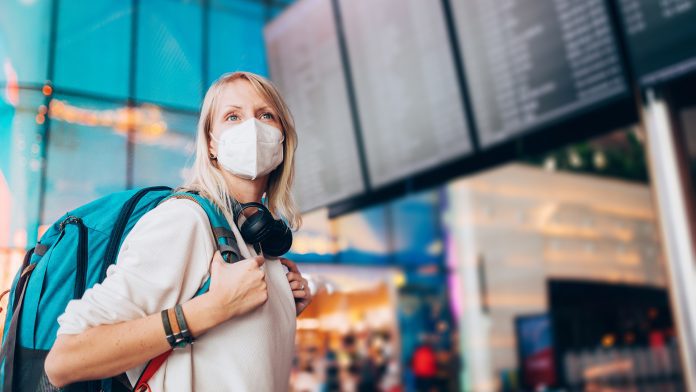
UK scientists have developed an innovative Covid testing lab that fits inside a backpack, a significant development for mobile diagnostics.
Researchers from the Queen Mary University of London have significantly streamlined infection diagnostics, creating a Covid testing lab that fits in a backpack that has demonstrated the same performance as commercially available Covid tests at identifying SARS-CoV-2.
Their research is published in PLOS One.
Compact Covid testing lab
The teams’ novel Covid testing lab is extremely economical, costing only $51 to produce, providing an affordable alternative for countries with poor resources or remote areas deficient in well-equipped testing and trained experts to process samples. The Covid testing lab follows the same infrastructure as a non-invasive Covid LAMP test and is comprised of low-cost hardware such as a centrifuge made from recycled computer hard drives to process samples.
The LAMP test is a globally accepted alternative to the PCR test, achieving comparable sensitivity; however, the LAMP test does not require temperature cycling, only a single high temperature to highlight potential virus RNA. This means it can be employed with only minimal equipment and reagents.
Due to the LAMP test utilising saliva samples, it does not require invasive nasal swabs. However, commercial LAMP tests come at a high cost, requiring expensive lab equipment to run them, making them not appropriate for remote locations or in-home testing. Nevertheless, the researchers’ newly developed Covid testing lab looks to reap the benefits of the LAMP test at just a small fraction of the price.
Next steps
The team are now aiming to refine the instructions for their Covid testing lab, making them even more clear so they can be understood regardless of experience or language, and will validate the kit with real patient samples. The researchers noted that although their Covid testing lab shows significant promise, more work is needed before it can be implemented in real-world environments.
Professor Stoyan Smoukov, Professor of Chemical Engineering at the Queen Mary University of London, said: “We are excited for the potential of this mobile lab to do Covid-19 tests and the possibility to democratise access to inexpensive testing technology. It is made possible by our philosophy of creating low-cost instruments whenever possible from advances in electronics or existing instruments.
“Reuse is a high-value option for energy and materials sustainability, and we are glad that rather than exporting electronics waste to developing countries, we can export ways to empower people and turn waste computer hard drives into a centrifuge. The Covid-19 test is a timely application, but we also believe with this CentriDrive kit people could perform a large array of routine blood and urine tests, providing a centrifuge away from central hospital facilities.”
Emily Lin, the lead author of the study, said: “In this study, using the LAMP test method in combination with a low-cost centrifuge, we provided an inexpensive, rapid and accurate method for the detection of COVID-19. It will not only provide a viable and inexpensive test kit for regions such as Africa, where innovative solutions are particularly important during the Covid-19 pandemic. It can also be used in resource-rich areas, for example, in high school classrooms to demonstrate how to test for Covid-19.”
Professor Smoukov added: “Combining open-access science with open-source hardware lets everyone in the world test this for themselves with minimal resources. We are also providing this technology to the innovators and entrepreneurs in the Pan-African Innovation Competition Queen Mary is running to inspire inventors in Africa. Perhaps this royalty-free invention will let people tinker and educate themselves and others on how different blood or virus tests work. Or the simplicity and cost advantage may inspire people to base a company around it.”










